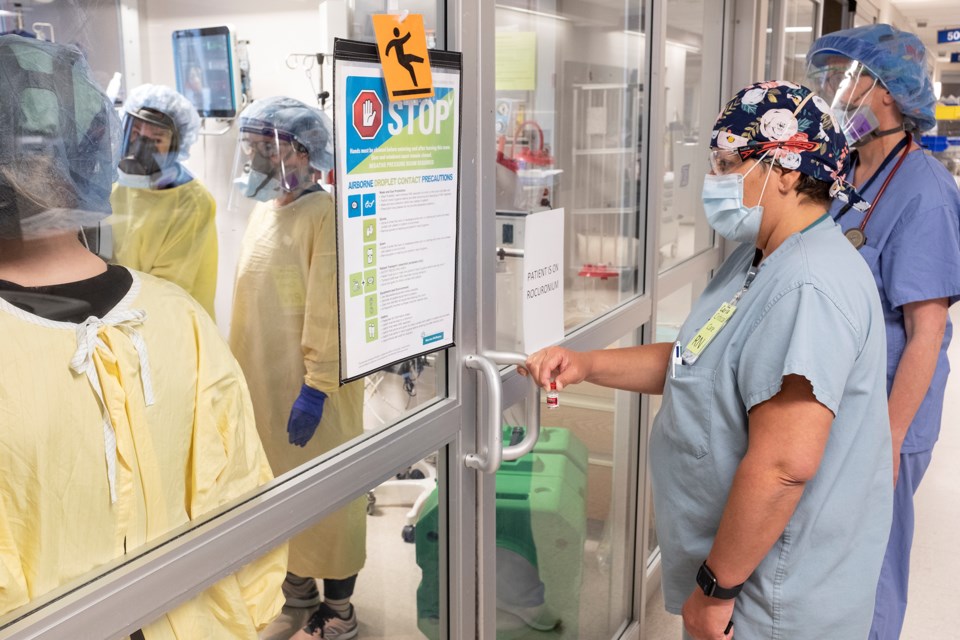As Ontario bears the cost of healthcare issues and professionals consider leaving the industry, Ontario Green Party leader and Guelph MPP Mike Schreiner believes now is the time for the provincial government to invest in the healthcare system.
"I've been meeting with nurses, family doctors and other healthcare workers, and the system is near collapse, not only in hospitals, but in family practices as well," said Schreiner.
He said the latest financial accountability officer report found the provincial government under spent in healthcare by $1.8 billion last year.
"I'm just thinking, 'Here we are, we have emergency rooms closing, we have staff leaving the profession at unprecedented numbers, we have healthcare professionals saying the system is on the verge of collapse, we have people who need to access the system not getting access to the system or services they deserve,' How can you under spend by $1.8 billion dollars?" said Schreiner. "By penny-pinching, it's actually going to costs us more because the cost of care is going to escalate when people's health deteriorates and becomes more serious, more acute."
Speaking with local family doctors, Schreiner said current issues include finding specialists for patients, providing mental health resources and seeing more patients with serious illnesses.
In the area, North Wellington Health Care temporarily closed obstetrical (OB) services at its two hospitals until September due to a lack of OB nurses. The Ontario Nurses Association (ONA) also expressed concerns about partial closures happening in 14 hospitals across the province in a recent news release.
Guelph General Hospital spokesperson, Perry Hagerman, said the hospital is strategically admitting patients to the units best staffed. He explains a medicine patient may be admitted into what is considered a surgical bed, but, since the hospital has two units that have both surgical and medicine beds, the patient wouldn’t have noticed anything different.
A recent survey conducted on behalf of the Registered Practical Nurses Association of Ontario indicates one in two RPNs is considering leaving the profession.
With less than a week until elected officials return to Queen's Park, Schreiner said healthcare is one high priority issue he is focusing on.
"I'm hearing from nurses, but I'm hearing from a number of others, like lab technicians, who are retiring early or saying, 'I need to step back and take a break,' so this health human resource capacity issue is real, and has been real for a while now," said Schreiner, noting a recent conversation with a home care nurse who is struggling to provide high quality care.
"You've seen pulling back of emergency room services across the province, but we really need to understand it in context, it's the whole system is under-resourced and understaffed. The Ford government is not addressing the issue, and all these issues are contributing to the challenges we are facing in the hospitals."
During a Wednesday news conference, Ford said the government is trying to add more staff to the system, including a target of hiring 5,000 more nurses as well as working to speed up the accreditation process for internationally trained nurses.
With some immediate issues in healthcare, Schreiner said Bill 124 needs to be repealed for healthcare workers, and a staff retention and recruitment strategy should also be put in place, including accrediting international healthcare workers, like nurses, to work in Ontario.
“According to the RNAO, the Registered Nurses Association of Ontario, there's 15,000 to 20,000 foreign-trained nurses, who, if we could get them accredited and working in the profession, would provide some immediate help,” said Schreiner.
Other solutions Schreiner suggests is investments in social supports, including 10 paid sick days, doubling ODSP rates and mental health care.
“It will immediately take some of the pressures off of hospitals in particular, but also just the healthcare system in general,” Schreiner said about the investments. “ I can tell you, when I talk to family doctors in Guelph, one of their biggest challenges right now is not having the resources to address the number of mental health challenges their patients are experiencing."
Maintaining a commitment to working with other parties, Schreiner notes public pressure, and collaboration between opposition parties, may bring about the most change. Schreiner said Guelph is a caring and engaging community and residents all benefit from that.
“We’ve seen over the Ford government’s first term that if there’s enough public pressure put on them, they will move and they will shift their positions, so, I’ve been encouraging people to continue putting on that pressure, and working with people like myself to ramp up that pressure to get the government to recognize, for example, the devastating effect things like capping wages for healthcare workers, and what that’s doing to our healthcare," said Schreiner.
“So putting that public pressure, I think, is the only thing that’s going to get the Ford government to shift their position and move on some of these issues.”
